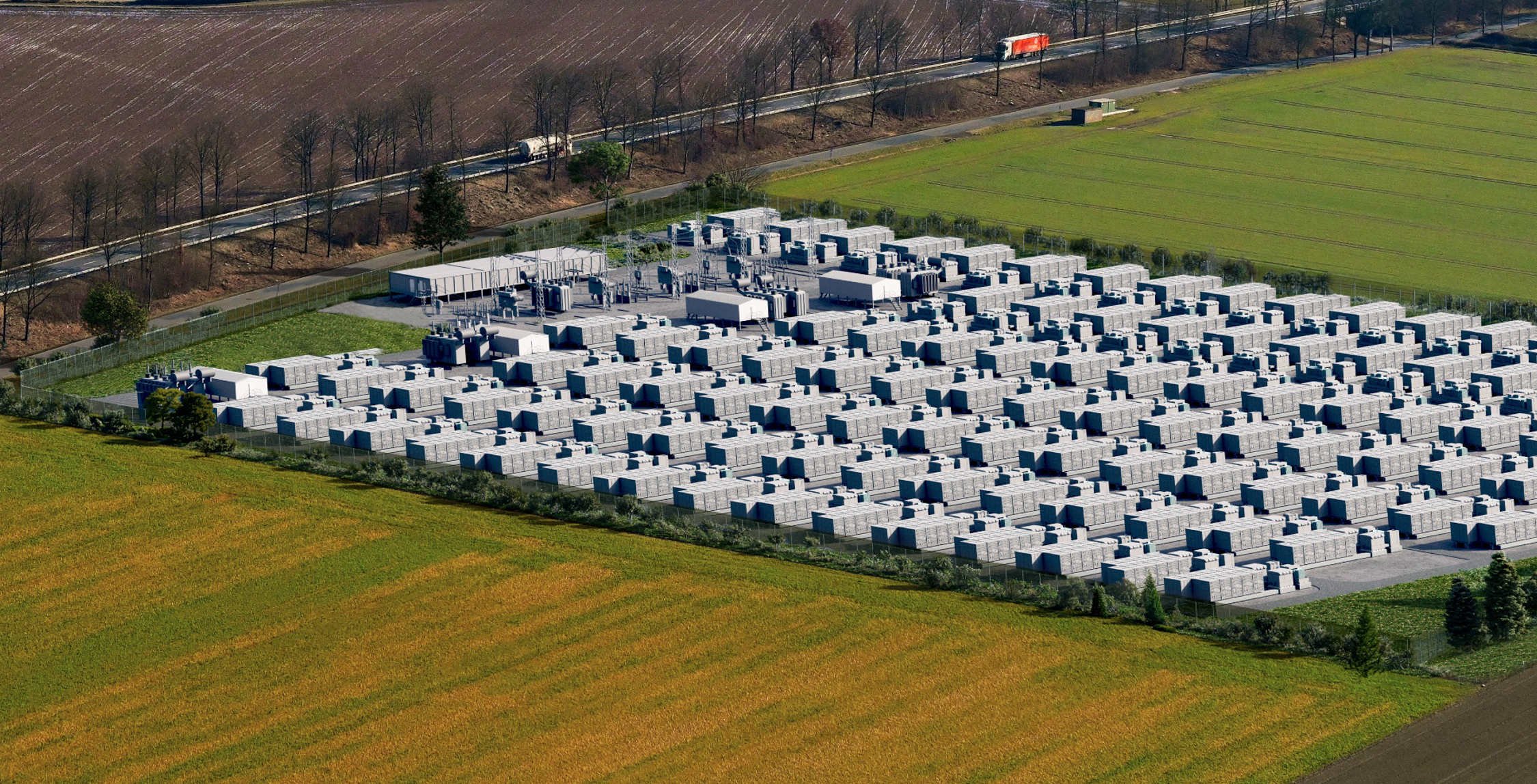Storage facts series (IV) | Critics question whether battery storage systems are useful for the grid and system. Why they are wrong.
A constant frequency is of paramount importance for the stability of the electricity grid. However, with the expansion of wind and solar energy, there are strong fluctuations: On sunny and windy days, there is an abundance of electricity, which is accompanied by increasing frequency. During so-called dark doldrums, on the other hand, the grid frequency drops.
In both cases, battery energy storage systems (BESS) can help: They react at lightning speed to an increase in frequency, absorb excess electricity and thus make an important contribution to stabilizing the electricity grid. In this way, they also prevent wind turbines or photovoltaic systems from having to be switched off.
When the frequencies drop again because demand exceeds supply, large-scale batteries then supply so-called balancing energy – typically in the evening and at night. This means that they once again have a significant stabilizing effect on the electricity grid and also increase the security of supply.
Federal Network Agency: Does it steer or slow down?
But that is not enough for critics. They criticize two things. Firstly, large-scale batteries are also being built in locations where the surplus of green electricity is currently manageable. This affects many regions in the south of Germany because wind energy does not play as big a role there as it does in northern Germany.
This argument can be quickly dismissed: the fact that they are needed even more urgently elsewhere does not speak against the respective projects (especially as they are financed by the private sector). And one thing is clear: There is a need for additional storage capacities throughout Germany, including in the south.
Politicians and the Federal Network Agency should therefore welcome every BESS instead of slowing down investments in the south with high construction cost subsidies. And they should be aware of the limits and risks of state investment control.
Grid-friendly and economical at the same time – this is how it works
The second argument put forward by critics is more or less that large-scale battery operators sell electricity when it is most lucrative – and not when it makes the most sense for the electricity grid. Sometimes there is even talk of “speculation”. In doing so, they construe a conflict of interest that in many cases does not exist:
When the electricity price is high, this usually signals a shortage – “storing” the battery power is therefore usually not only economically sensible, but also beneficial to the grid and system.
In addition, large batteries often provide other important services: They hold reserves that grid operators can call on at their own discretion – regardless of the current market electricity price. In practice, balanced concepts are currently establishing themselves on the basis of which BESS are both economical and useful to the grid.

